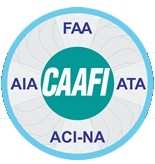Fri, Dec 02, 2011
Stated Goal Is Cleaner, More Sustainable Jet Fuel
The FAA is awarding $7.7 million in contracts to eight companies
to help advance alternative, environmentally-friendly, sustainable
sources for commercial jet fuel. The FAA funds are being
distributed by the DOT's John A. Volpe Center.

The contracts address a recommendation issued by the Future of
Aviation Advisory Committee, which was commissioned by Secretary
LaHood last year. The committee, comprised of experts from
industry, academia, labor and government, specifically recommended
that DOT exercise strong national leadership to promote and display
U.S. aviation as a first user of sustainable alternative fuels.
“These new green aviation fuels will use energy sources right
here at home,” said U.S. Secretary of Transportation Ray
LaHood. “This type of innovation will create good-paying jobs
in the airline and energy industries and help protect the
environment at the same time.”
Accordingly, the eight companies selected for the contracts will
help the FAA develop and approve alternative, sustainably-sourced
“drop-in” jet fuels that can be used without changing
aircraft engine systems or airport fueling infrastructure. As part
of that work, the companies will develop these biofuels from
sources such as alcohols, sugars, biomass, and organic materials
known as pyrolysis oils. In addition, the contracts call for
research into alternative jet fuel quality control, examination of
how jet biofuels affect engine durability, and provide guidance to
jet biofuel users about factors that affect sustainability.
“Alternative aviation fuels offer enormous potential
environmental and economic benefits,” said FAA Administrator
Randy Babbitt. “This work, in combination with investments
being made by other U.S. agencies and industry, will advance our
pursuit of clean alternative jet fuels for a more sustainable
NextGen aviation system in the United States and around the
world.”
The contracts build on alternative fuel development investments by
the Departments of Defense, Energy, Agriculture, the National
Aeronautics and Space Administration and the Environmental
Protection Agency, as well as by FAA. The contracts stem from work
the FAA is doing through the agency’s Commercial Aviation
Alternative Fuel Initiative (CAAFI) and the agency’s
Continuous Lower Emissions, Energy and Noise (CLEEN) program.
More News
Aero Linx: Aviators Code Initiative (ACI) Innovative tools advancing aviation safety and offering a vision of excellence for aviators. The ACI materials are for use by aviation pra>[...]
Make Sure You NEVER Miss A New Story From Aero-News Network Do you ever feel like you never see posts from a certain person or page on Facebook or Instagram? Here’s how you c>[...]
From 2016 (YouTube Edition): Who You Gonna Call When You Have a Rocket Engine that Needs a Spacecraft? While at EAA AirVenture 2016, ANN CEO and Editor-In-Chief, Jim Campbell, sat >[...]
"In my opinion, if this isn't an excessive fine, I don't know what is... The odds are good that we're gonna be seeking review in the United States Supreme Court. So we gotta muster>[...]
Expedite Used by ATC when prompt compliance is required to avoid the development of an imminent situation. Expedite climb/descent normally indicates to a pilot that the approximate>[...]
 ANN's Daily Aero-Linx (04.30.25)
ANN's Daily Aero-Linx (04.30.25) ANN FAQ: Turn On Post Notifications
ANN FAQ: Turn On Post Notifications Classic Aero-TV: Agile Aeros Jeff Greason--Disruptive Aerospace Innovations
Classic Aero-TV: Agile Aeros Jeff Greason--Disruptive Aerospace Innovations Aero-News: Quote of the Day (04.30.25)
Aero-News: Quote of the Day (04.30.25) ANN's Daily Aero-Term (04.30.25): Expedite
ANN's Daily Aero-Term (04.30.25): Expedite



